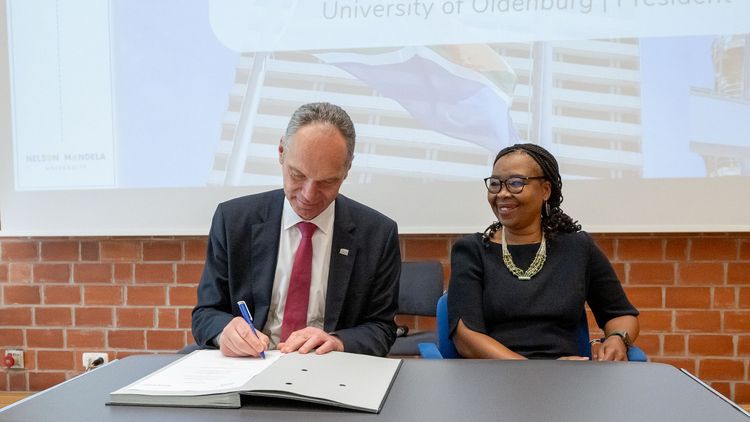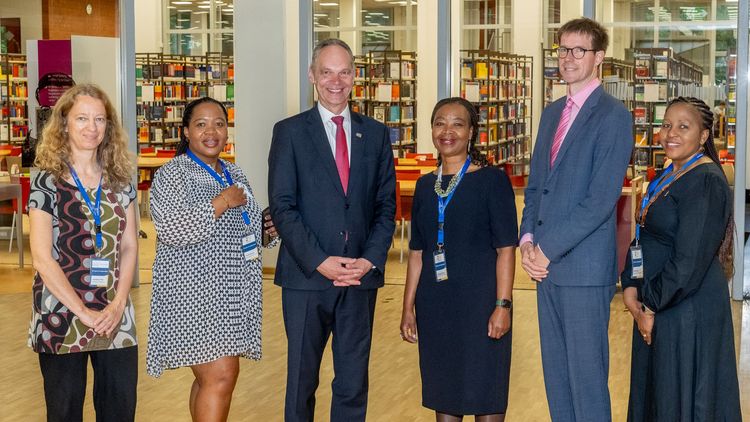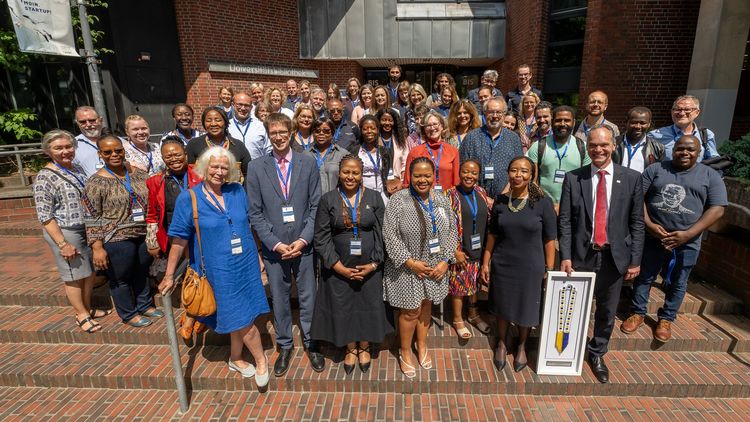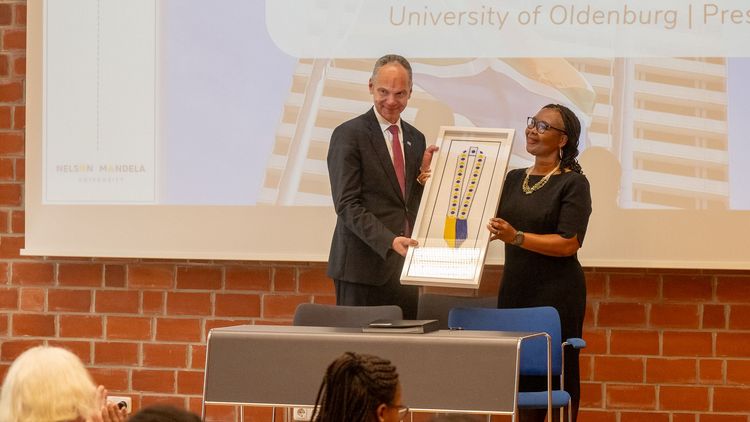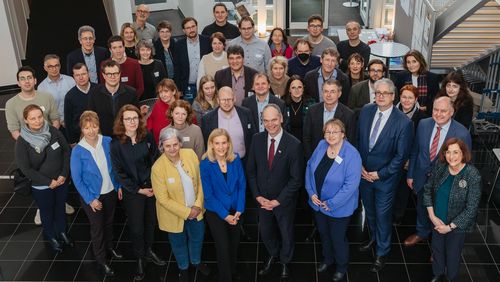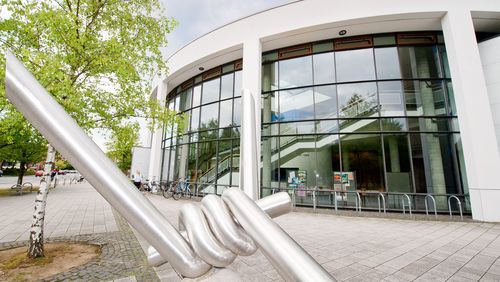The University of Oldenburg and Nelson Mandela University in Gqeberha, South Africa, celebrate their 25 years of cooperation - and adopt a roadmap with eight key fields of action for the coming five years.
"Our friendship thrives on the commitment and cooperation of many actors and - this is extraordinary - on a deep bond between the entire institutions." With these words, University President Prof. Dr Ralph Bruder pays tribute to the partnership between Nelson Mandela University in Gqeberha, South Africa, and the University of Oldenburg. This partnership has existed since 1998. In order to strengthen and expand their cooperation in research, teaching and transfer, the presidencies of both universities have now adopted a "Roadmap for Cooperation 2023-2028" in Oldenburg. Together with a 22-strong delegation from Mandela University, university members are currently celebrating the 25th anniversary of the cooperation.
"Our universities are a perfect match. We share the same values," says Bruder. Both universities are named after Nobel Peace Prize winners: Nelson Mandela and Carl von Ossietzky: "We take responsibility and stand for an open society and tolerance. Together, we are committed to shaping a more sustainable future.”
Key role in the university's international network
“We value our partnership with the University of Oldenburg,” says Nelson Mandela University Vice-Chancellor Prof. Dr Sibongile Muthwa. "Both universities have much to share and learn from each other, so the relationship is mutually beneficial, whereby we will pursue various niche collaborations that straddle the three academic missions of learning and teaching; research and innovation; and engagement.”
Since the first cooperation agreement was signed in 1998, many students, researchers and teachers have taken part in the exchange between the two universities. From 2005 onwards, Mandela University has been playing a key role in Oldenburg University's international network. "We work closely together and in a spirit of trust," says Prof. Dr Karsten Speck, Vice President for Studies, Teaching and International Affairs and ambassador for the cooperation. "Mandela University is, next to the University of Groningen, our most strategically important partner university."
Focus on education
In addition to established areas of cooperation, such as teaching and continuing education, sustainability research and, since 2017, marine research, the participants will in future expand their cooperation in the humanities and social sciences, in medicine and health sciences, as well as in the field of renewable energies. The newly signed roadmap, which focuses on eight thematic areas, also takes knowledge transfer and the promotion of early career researchers into account.
Since the beginning of the cooperation with the University of Port Elizabeth, a predecessor institution, higher education and educational sciences have been an important focus. Currently, the partners are cooperating, among other things, in the project "Dimensions of Diversity in Teacher Education" funded by the German Academic Exchange Service (DAAD) - together with the University of Groningen and the NHL Stenden (Netherlands), with the aim of further internationalising teacher education.
Pursuing sustainability goals together
The East and South African-German Centre for Educational Research Methodologies and Management (CERM-ESA) and the Digital Initiative for Centres of African Excellence (DIGI-FACE), which include other African partners, focus on educational research approaches and academic training. In the future, the participants want to include other disciplines in the cooperation and promote participatory research approaches, for example.
Research and education that contribute to the fundamental transformation of our societies in line with the United Nations Sustainable Development Goals form another important focus of the Roadmap. Both institutions will also exchange ideas and experiences on how to make their own organisation more sustainable and thus fit for the future.
Promoting start-ups across borders
In the field of marine sciences, the two universities have been working together since 2017 to develop strategies for more effective management of marine ecosystems, among other things. In the humanities and social sciences, there are several areas of joint activity, such as gender studies or the interface between the arts, humanities and computer science. The partners are also exploring new fields of action in medicine and health sciences, and in renewable energy research.
Joint courses for students and young researchers, online and face-to-face, jointly supervised doctoral theses and exchange programmes are to be further developed in the future and international dialogue promoted. In addition, as part of the successful start-up culture at Oldenburg University, instruments will be developed to systematically support start-ups across borders.

